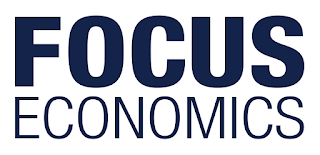Economic Outlook Worsens For Turkey...
The Turkish economy continued to flag at the start of the year. Consumer credit growth eased to a decade low in Q1 2019, while retail sales continued to contract in the first two months of the year. Consumer spending felt the pinch from high unemployment, depressed confidence levels, still-elevated inflation and a weak currency. Moreover, the manufacturing sector remained in a tough spot as reflected by its weak PMI reading throughout Q1 and April. Against this backdrop, the government announced new reforms in early April in an attempt to stimulate the economy. In more positive news, tourism income rose robustly in the first quarter of the year as the number of visitors increased noticeably from a year earlier, likely aided by the starkly cheaper lira. Meanwhile, the trade deficit narrowed as imports continued to fall sharply through March in tandem with the plunging lira.
The economy is expected to shrink this year on the back of falling domestic demand due to high inflation, rising unemployment and a weak currency. Towards the end of the year, the economy should recover and inflationary pressures should ease, which would provide room for monetary policy easing.
Inflation eased to 19.5% in April from 19.7% in March. This year, price pressures should ebb due to tight monetary policy and frail domestic demand, although they will likely remain elevated in the months ahead on an unsupportive base effect.
Turkey’s manufacturing sector opened the second quarter on a sour note: The Purchasing Managers’ Index (PMI) ticked down to 46.8 in April from 47.2 in March, indicating that operating conditions worsened at a stronger pace. The latest print marked the 13th consecutive moderation in business conditions. The latest downturn in the index, produced by the Istanbul Chamber of Industry in cooperation with IHS Markit, came on the back of a further drop in new orders, both domestic and foreign, driving production down and leading to more moderate purchasing activity. The drop in domestic new orders was sharper than new business from abroad. Weak new orders also drove destocking activity, with pre- and post-production inventories shrinking at a quicker pace compared to March. Ongoing currency weakness vis-à-vis the greenback was again a noticeable drag on the sector. The weak lira drove input costs to the highest level since October last year and this consequently pushed output prices up to a six-month high. Furthermore, suppliers’ delivery times lengthened again amid payment difficulties, likely linked to demand weakness. Andrew Harker, associate director at IHS Markit, noted that there was a silver lining in April: “More positive was the labour market situation, with employment broadly stable amid signs that firms are looking to the future and working on new products in anticipation of an improvement in business conditions later in the year.”
Reporting from:



